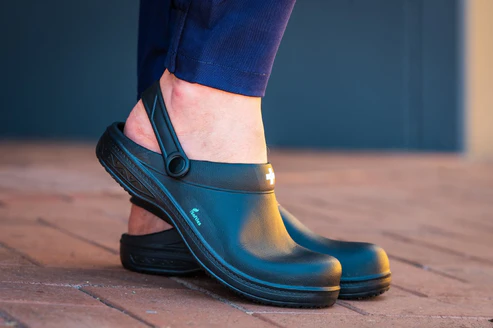Key Features Every Healthcare Professional Should Seek in Nurses’ Shoes

Healthcare professionals spend countless hours on their feet, moving quickly between patients, equipment, and tasks that require energy and focus. Over time, this constant activity can create strain on the body, especially the feet, knees, and back. Selecting the right footwear is more than just a matter of comfort it plays a critical role in safety, performance, and long-term health. This is why nurses' shoes must be carefully evaluated to ensure they meet the demands of long and demanding shifts.
Cushioning and Shock Absorption
One of the most important features to look for in shoes for nurses is effective cushioning. Every step taken during a 12-hour shift places repeated stress on joints, and without adequate shock absorption, fatigue sets in quickly. High-quality insoles with responsive foam or gel can reduce the impact on knees and hips. Studies in occupational health have shown that cushioning directly influences endurance and comfort, making it essential for reducing physical strain. Proper shock absorption also helps in preventing micro-injuries that accumulate over time.
Arch Support for Stability
The design of nurses' shoes should always prioritise supportive arches. Healthcare workers often experience foot issues like plantar fasciitis when wearing footwear with poor arch structure. Proper arch support promotes natural alignment, improving balance while walking or standing for long hours. Stability becomes especially important in high-pressure hospital environments where a sudden movement or quick response may be required. Footwear with tailored arch support allows professionals to maintain mobility without risking strain or collapse of the foot structure.
Slip Resistance for Safety
Hospitals and clinics are environments where spills are common, from liquids on the floor to polished surfaces that become slippery. For this reason, shoes for nurses must include slip-resistant soles. Outsoles made from rubber with patterned treads provide traction that helps reduce accidents. The importance of slip resistance goes beyond comfort; it’s a matter of workplace safety. According to data from healthcare safety reports, slips and falls are among the leading causes of workplace injury in hospitals, making this feature a non-negotiable requirement.
Breathability and Moisture Control
Working long hours in fast-paced healthcare environments can cause excessive foot sweating, which leads to discomfort and potential skin issues. High-quality nurses' shoes often incorporate breathable mesh panels or moisture-wicking linings to manage airflow and dryness. Breathable materials reduce the risk of bacterial buildup and odour, ensuring shoes remain hygienic for extended use. This feature not only improves comfort during work but also contributes to long-term foot health, preventing infections and irritation.
Lightweight Construction
The constant movement required in a healthcare setting means heavy shoes can quickly add to fatigue. Lightweight construction is a critical feature that should not be overlooked. Shoes for nurses designed with advanced materials like EVA foam or engineered mesh provide durability without unnecessary weight. Professionals who wear lighter footwear often report less exhaustion by the end of a shift. The goal is to maintain energy levels without sacrificing protection or support, making lightweight designs an essential factor in selection.
Durability and Easy Maintenance
The demanding environment of healthcare facilities means footwear must withstand long hours of use, exposure to fluids, and frequent cleaning. Nurses' shoes should be crafted from durable materials that resist wear while remaining easy to clean. Slip-on designs with water-resistant uppers allow quick sanitation, which is particularly valuable in maintaining hygiene standards. Long-lasting shoes also represent a wise investment, reducing the need for constant replacements while ensuring consistent performance.
Conclusion
Choosing the right footwear is not just about personal comfort; it directly impacts safety, performance, and health in healthcare professions. Evaluating features such as cushioning, arch support, slip resistance, breathability, lightweight construction, and durability ensures that professionals remain protected and efficient during demanding shifts. By carefully considering these qualities in shoes for nurses, healthcare workers can reduce fatigue, prevent injuries, and improve overall workplace satisfaction. Just as selecting quality footwear matters, so does choosing comfortable workwear like fun scrubs Australia, which together help create the foundation for both comfort and professionalism in the healthcare setting.
- Art
- Causes
- Crafts
- Dance
- Drinks
- Film
- Fitness
- Food
- Games
- Gardening
- Health
- Home
- Literature
- Music
- Networking
- Other
- Party
- Religion
- Shopping
- Sports
- Theater
- Wellness


